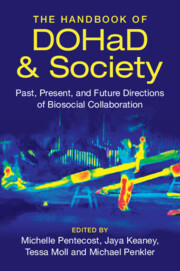Epidemiology and Culture
Demonstrating how practitioners in the emerging field of "cultural epidemiology" describe human health, communicate with diverse audiences, and intervene to improve health and prevent disease, this book uses textual and statistical portraits of disease to describe interdisciplinary collaborations. Interpreting epidemiology as a cultural practice helps to reveal the ways in which measurement, causal thinking, and intervention design are influenced by belief, habit, and theories of power.
- Demonstrates how individual decisions and beliefs become health patterns of populations
- Written in accessible language and with many examples for upper-level undergraduates, graduate students in public health and medicine, and practising professionals
- Includes lists of recommended readings for each chapter as well as extensive references
Reviews & endorsements
"To produce his highly readable text, the author brings to bear a doctoral education and experience in anthropology together with respectable background in epidemiology. The text is, in essence, an address to epidemiologists about the notion of culture by a knowledgeable anthropologist. He uses his thorough grounding in anthropology to sharpen the insights and sensitivities of epidemiologists. I was happy to find the work a pleasure to read."
Mervyn Susser, Sergievsky Professor of Epidemiology Emeritus, Columbia University
"This well-written book provides an excellent discussion of how culture influences epidemiologic research. It is an important book for anyone working in epidemiology of human health or interested in the sociocultural influences on the measurement of disease. This is the most comprehensive book on the subject, and it challenges our current views of epidemiologic studies and interventions. I would highly recommend it as a valuable resource for epidemiology researchers, clinical investigators, and students, to add a new way of thinking to their ongoing research."
Perspectives in Biology and Medicine
"By incorporating a wide array of examples and contextualizing his analysis in a political-economic framework, Trostle develops a theoretically rich portrayal of cultural epidemiology that has clear practical applications for epidemiologists and clinicians alike."
Hannah Gilbert, The Journal of Nervous and Mental Disease
"This well-written book provides an excellent discussion of how culture influences epidemiologic research. It is an important book for anyone working in epidemiology of human health or interested in the sociocultural influences on the measurement of disease."
Martha Gulati, Northwestern Memorial Hospital, Epidemiology and Culture
"This book is an ambitious and clearly needed effort at this time in the two sciences: epidemiology and anthropology."
Marianne Berwick, University of New Mexico, Journal of Anthropological Research
Product details
February 2005Hardback
9780521790505
232 pages
235 × 158 × 23 mm
0.425kg
10 tables
Available
Table of Contents
- 1. Introduction
- 2. The origins of an integrated approach in anthropology and epidemiology
- 3. Disease patterns and assumptions: unpacking variables
- 4. Cultural issues in measurement and bias
- 5. Anthropological contributions to the study of cholera
- 6. Anthropological and epidemiological collaboration to help communities become healthier
- 7. Perceiving and representing risk
- 8. Conclusion.










